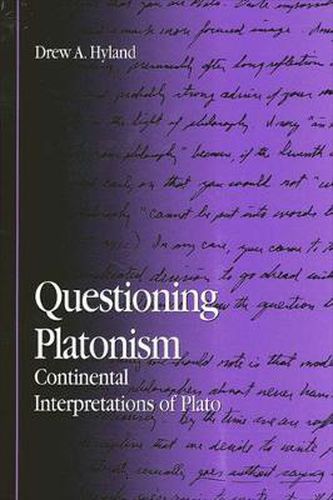Readings Newsletter
Become a Readings Member to make your shopping experience even easier.
Sign in or sign up for free!
You’re not far away from qualifying for FREE standard shipping within Australia
You’ve qualified for FREE standard shipping within Australia
The cart is loading…






Given the conception of philosophy held by continental thinkers, and in particular their greater sensitivity to the kinship of philosophy and literature, Drew A. Hyland argues that they should be much more attentive to the literary dimension of Plato’s thinking than they have been. He believes they would find in the dialogues not the various forms of Platonism that they wish to reject, but instead a thinking much more congenial and challenging to their own predilections.
By carefully examining the works of Heidegger, Derrida, Irigaray, and Cavarero, Hyland points to the tendency of continental thinkers to view Plato’s dialogues through the lens of Platonism, thus finding Platonic metaphysics, Platonic ethics, and Platonic epistemology, while overlooking the literary dimension of the dialogues, and failing to recognize the extent to which the form undercuts anything like the Platonism they find. The striking exception, Hyland claims, is Hans-Georg Gadamer who also demonstrates the compatibility of the Platonic dialogues with the directions of continental thinking.
$9.00 standard shipping within Australia
FREE standard shipping within Australia for orders over $100.00
Express & International shipping calculated at checkout
Given the conception of philosophy held by continental thinkers, and in particular their greater sensitivity to the kinship of philosophy and literature, Drew A. Hyland argues that they should be much more attentive to the literary dimension of Plato’s thinking than they have been. He believes they would find in the dialogues not the various forms of Platonism that they wish to reject, but instead a thinking much more congenial and challenging to their own predilections.
By carefully examining the works of Heidegger, Derrida, Irigaray, and Cavarero, Hyland points to the tendency of continental thinkers to view Plato’s dialogues through the lens of Platonism, thus finding Platonic metaphysics, Platonic ethics, and Platonic epistemology, while overlooking the literary dimension of the dialogues, and failing to recognize the extent to which the form undercuts anything like the Platonism they find. The striking exception, Hyland claims, is Hans-Georg Gadamer who also demonstrates the compatibility of the Platonic dialogues with the directions of continental thinking.